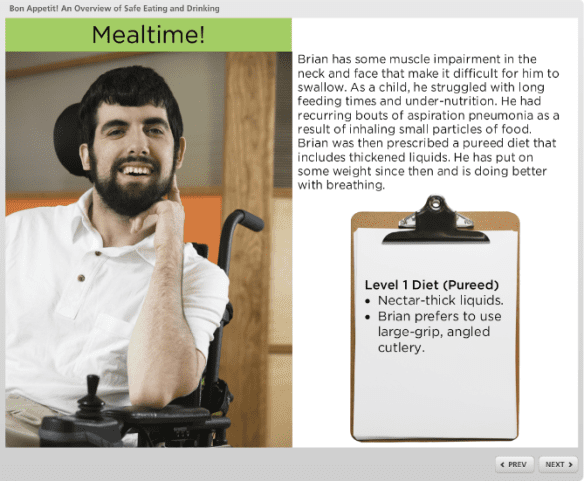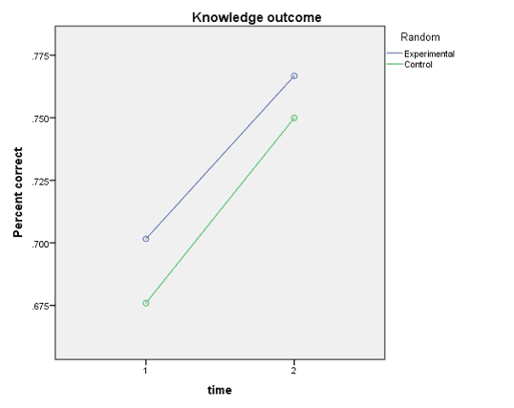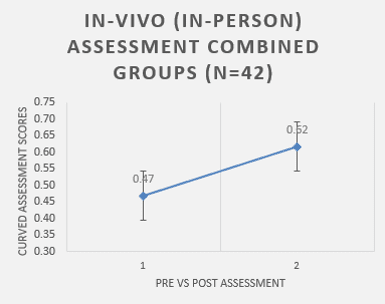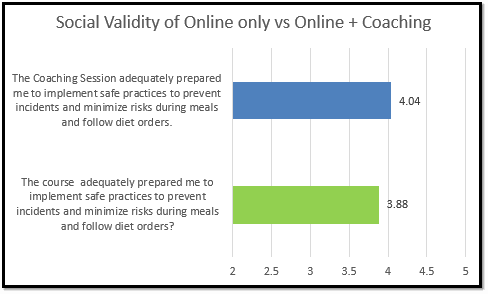Solutions ∨
Learning and Performance → ∨
Mandatory TrainingIssue required courses and monitor compliance ∨
Continuing EducationOffer clinicians training to meet license requirements ∨
Professional DevelopmentEngage staff and empower career growth ∨
Clinical DevelopmentEnhance skills with clinician-built content ∨
Certification ReviewBuild knowledge and increase exam pass rates ∨
Competency ManagementMeasure and evaluate knowledge, skills, and abilities ∨
Obstetrics SolutionReduce variation in care with data-driven learning ∨
Onboarding SolutionTailor nurse training and reduce turnover ∨
Recruiting and Staffing → ∨
Talent Acquisition AdvertisingTarget your recruitment to our 3M+ nurse community ∨
Validated AssessmentsGauge job fit with clinical, behavioral, situational assessments ∨
Nurse Job BoardPost your nurse opportunities on Nurse.com ∨
Compliance Management → ∨
Compliance SoftwareMeet requirements with easy to administer package ∨
Mandatory TrainingIssue required courses and monitor compliance ∨
View All Solutions → ∨
Who We Serve ∨
Who We Serve → ∨
Hospitals and Health SystemsLarge multisite systems, critical-access hospitals, staffing agencies ∨
Individual Healthcare WorkersPhysicians, nurses, clinicians, and allied health professionals ∨
Post-Acute and Long-Term CareSkilled nursing facilities, continuing care retirement communities and life plan communities, assisted living facilities, rehab therapy providers, and hospice agencies ∨
Behavioral and Community HealthBehavioral health, intellectual and developmental disabilities, applied behavior analysis, community health centers, and children, youth, and family-serving organizations ∨
Home Health and Home CareHome health and home care agencies and organizations ∨
Government OrganizationsFederal, state, and local entities ∨
Case Studies ∨
PAM Health Supports Business Growth, Employee Engagement, and Better Patient Outcomes With ReliasPAM Health utilized Relias to make post-acquisition employee onboarding easier and to influence positive patient outcomes through high-quality staff training and coaching. ∨
CSIG Depends on the Relias Platform Through Change and GrowthBefore 2020, Common Sail Investment Group (CSIG) conducted all its senior living staff training and education in person in different locations. ∨
Why Relias ∨
Why Relias → ∨
TechnologyEngage learners and ease burden for administrators ∨
Measurable OutcomesImprove workforce, organization, and patient results ∨
ServicesReduce administrative burden with professional solutions ∨
Expert ContentTrust Relias for quality, award-winning courses and tools ∨
CommunityTap into clinician resources and peer support ∨
Resources → ∨
How Mental Health and Social Determinants Are Driving Maternal MortalityThe CDC has uncovered another dimension affecting the already alarming problem of maternal mortality in the U.S… ∨
2023 DSP Survey ReportThe 2023 DSP Survey Report highlights feedback from 763 direct support professionals (DSPs) across the country on job satisfaction, supervision… ∨
Resources ∨
Resource Center → ∨
BlogKeep up with industry trends and insights ∨
Articles and ReportsReview recently published thought leadership ∨
Success StoriesRead about Relias clients improving outcomes ∨
EventsFind Relias at an upcoming industry conference ∨
WebinarsRegister for upcoming key topic discussions ∨
SupportContact us for help with your account ∨
PodcastExplore conversations with healthcare experts ∨
Upcoming Event ∨
Contact Sales → ∨
Company ∨
About Relias → ∨
CareersView our open positions ∨
MediaReview our latest news and make press inquiries ∨
EventsFind Relias at an upcoming industry conference ∨
Alliances and PartnershipsScan our industry connections and relationships ∨
AwardsCheck out our latest recognitions ∨
DiversityLearn more about Relias’ commitment to DEIB ∨
In the News → ∨
Log In ∨
Login Portals ∨
Relias Learning ∨
Nurse.com ∨
Relias Academy ∨
Wound Care Education Institute ∨
FreeCME ∨
Relias Media ∨
Solutions ∨
Learning and Performance → ∨
Mandatory TrainingIssue required courses and monitor compliance ∨
Continuing EducationOffer clinicians training to meet license requirements ∨
Professional DevelopmentEngage staff and empower career growth ∨
Clinical DevelopmentEnhance skills with clinician-built content ∨
Certification ReviewBuild knowledge and increase exam pass rates ∨
Competency ManagementMeasure and evaluate knowledge, skills, and abilities ∨
Obstetrics SolutionReduce variation in care with data-driven learning ∨
Onboarding SolutionTailor nurse training and reduce turnover ∨
Recruiting and Staffing → ∨
Talent Acquisition AdvertisingTarget your recruitment to our 3M+ nurse community ∨
Validated AssessmentsGauge job fit with clinical, behavioral, situational assessments ∨
Nurse Job BoardPost your nurse opportunities on Nurse.com ∨
Compliance Management → ∨
Compliance SoftwareMeet requirements with easy to administer package ∨
Mandatory TrainingIssue required courses and monitor compliance ∨
View All Solutions → ∨
Who We Serve ∨
Who We Serve → ∨
Hospitals and Health SystemsLarge multisite systems, critical-access hospitals, staffing agencies ∨
Individual Healthcare WorkersPhysicians, nurses, clinicians, and allied health professionals ∨
Post-Acute and Long-Term CareSkilled nursing facilities, continuing care retirement communities and life plan communities, assisted living facilities, rehab therapy providers, and hospice agencies ∨
Behavioral and Community HealthBehavioral health, intellectual and developmental disabilities, applied behavior analysis, community health centers, and children, youth, and family-serving organizations ∨
Home Health and Home CareHome health and home care agencies and organizations ∨
Government OrganizationsFederal, state, and local entities ∨
Case Studies ∨
PAM Health Supports Business Growth, Employee Engagement, and Better Patient Outcomes With ReliasPAM Health utilized Relias to make post-acquisition employee onboarding easier and to influence positive patient outcomes through high-quality staff training and coaching. ∨
CSIG Depends on the Relias Platform Through Change and GrowthBefore 2020, Common Sail Investment Group (CSIG) conducted all its senior living staff training and education in person in different locations. ∨
Why Relias ∨
Why Relias → ∨
TechnologyEngage learners and ease burden for administrators ∨
Measurable OutcomesImprove workforce, organization, and patient results ∨
ServicesReduce administrative burden with professional solutions ∨
Expert ContentTrust Relias for quality, award-winning courses and tools ∨
CommunityTap into clinician resources and peer support ∨
Resources → ∨
How Mental Health and Social Determinants Are Driving Maternal MortalityThe CDC has uncovered another dimension affecting the already alarming problem of maternal mortality in the U.S… ∨
2023 DSP Survey ReportThe 2023 DSP Survey Report highlights feedback from 763 direct support professionals (DSPs) across the country on job satisfaction, supervision… ∨
Resources ∨
Resource Center → ∨
BlogKeep up with industry trends and insights ∨
Articles and ReportsReview recently published thought leadership ∨
Success StoriesRead about Relias clients improving outcomes ∨
EventsFind Relias at an upcoming industry conference ∨
WebinarsRegister for upcoming key topic discussions ∨
SupportContact us for help with your account ∨
PodcastExplore conversations with healthcare experts ∨
Upcoming Event ∨
Contact Sales → ∨
Company ∨
About Relias → ∨
CareersView our open positions ∨
MediaReview our latest news and make press inquiries ∨
EventsFind Relias at an upcoming industry conference ∨
Alliances and PartnershipsScan our industry connections and relationships ∨
AwardsCheck out our latest recognitions ∨
DiversityLearn more about Relias’ commitment to DEIB ∨
In the News → ∨
Health and Human ServicesLearning Management and TrainingResearch StudiesPurpose
Dysphasia (a swallowing disorder) is estimated to affect the majority of individuals with life-long disabilities and can increase the risk of choking especially as one ages. This study will investigate whether online training paired with coaching sessions can properly prepare DSPs to implement safe eating and drinking practices.
Methods
65 Direct Support Providers were randomized to either an group who received online scenario-based training only, or a group who received the same online training plus a 20-minute coaching session with a nurse. The coaching session also included the use of a visual poster to cue participants to diet order specifications reviewed in the course. Pre and post measures were used. All participants took a pretest and post test that measured client specific knowledge of safe eating and drinking practices. Forty-two of the sixty-five participants also completed pre and post hands-on interviews with physical meals that measured adherence to client specific diet orders. Post-tests were given between 6-10 days after the training interventions.
The online course, “Bon Appeitit: Overview of Safe Eating and Drinking for Individuals with IDD”, was delivered online through Relias. The course taught DSPs through interactive scenarios and feedback to:
- Recognize when a person is choking
- Identifying dangerous situations in pictures of meals for individuals with modified diets
- Identifying the onset of new problems and reporting them to appropriate people


Results
Both groups significantly increased from pre to post test that measured knowledge of client specific risks in pictures of meals. There was no significant difference between the groups that received online only vs online + coaching, see Fig. 1.

There was a more dramatic increase in scores with the in-person assessment measuring adherence to diet orders. Again, there was no significant difference between groups that received online only vs online + coaching, see Fig. 2. Interestingly, when asked what training activity was most effective, DSPs scored that the coaching session was better at preparing staff to implement safe practices even though the data did not support this finding, see Fig. 3


Discussion
Overall, these results indicate that the online training program is effective in increasing knowledge of client specific risks and increasing adherence to diet orders. The results also show that the coaching session did not seem to make a significant increase in knowledge and adherence although it was more enjoyable for staff. This may be due to the fact that it was only 20 minutes in a group format. The results of this study emphasize the importance of training on safe eating and drinking practices for DSPs. Baseline scores for staff averaged 69% for knowledge of risks and 41% for adherence to diet orders. Even after training, knowledge scores averaged 76% while adherence increased to an average of 56%, leaving a lot of room for improvement. What additional staff training and supports can be put in place to increase knowledge and diet order adherence even more?
*This study is being presented at the American Association for Individuals with Developmental Disabilities in June 2018.
Read more about this research
Authors

Emaley McCulloch M.Ed., BCBA
Vice President, Relias Institute, Relias
Audra Cuckler LVN
Contributor, Relias Institute

Elise Valdes PhD, MS
Director of Research, Relias

M. Courtney Hughes PhD, MS
Senior Researcher, Relias
Publication
Publication Pending
Research Partner
Easter Seals Southern California
Abstract
Dysphasia (a swallowing disorder) is estimated to affect the majority of individuals with life-long disabilities. Direct Support Professionals (DSPs) often support individuals with IDD during meals. Training for DSPs to identify dangerous situations according to the individual’s diet orders is important to preventing choking incidents. This paper reviews two studies using pre-and post-experimental design, evaluating an online training program on DSPs’ knowledge and adherence to diet orders. Pilot study (n=18) demonstrated an increase in knowledge for participants and informed improvements for the intervention. Follow-up study (n=64) included two groups, one that received online training only and one that received online training plus supervisor feedback. Both groups showed a significant increase in knowledge and adherence to diet orders. Online training may be an effective tool for training DSPs in safe eating and drinking practices.






